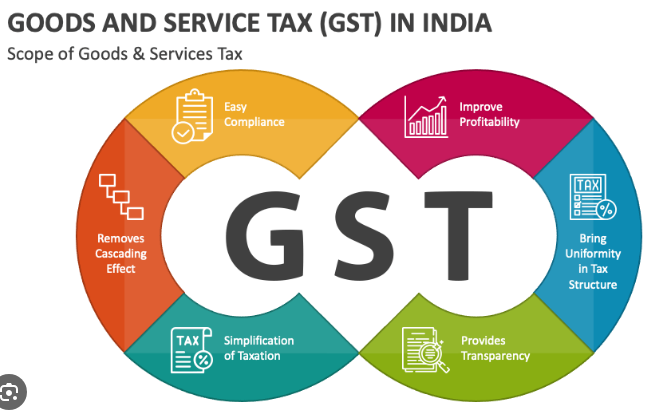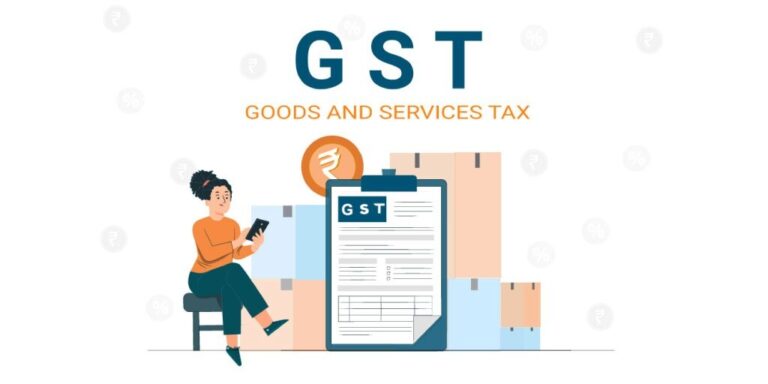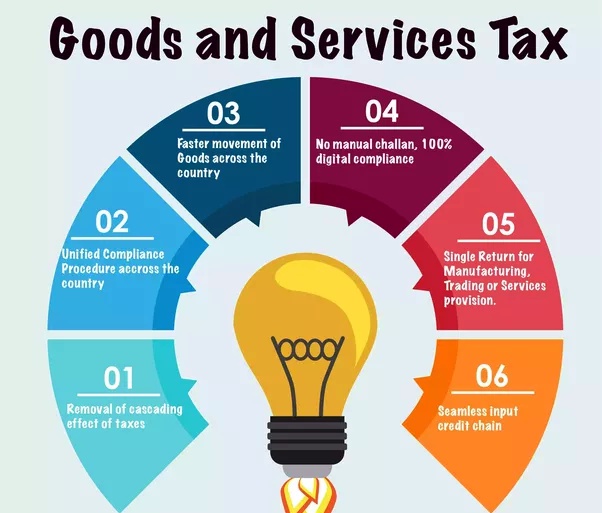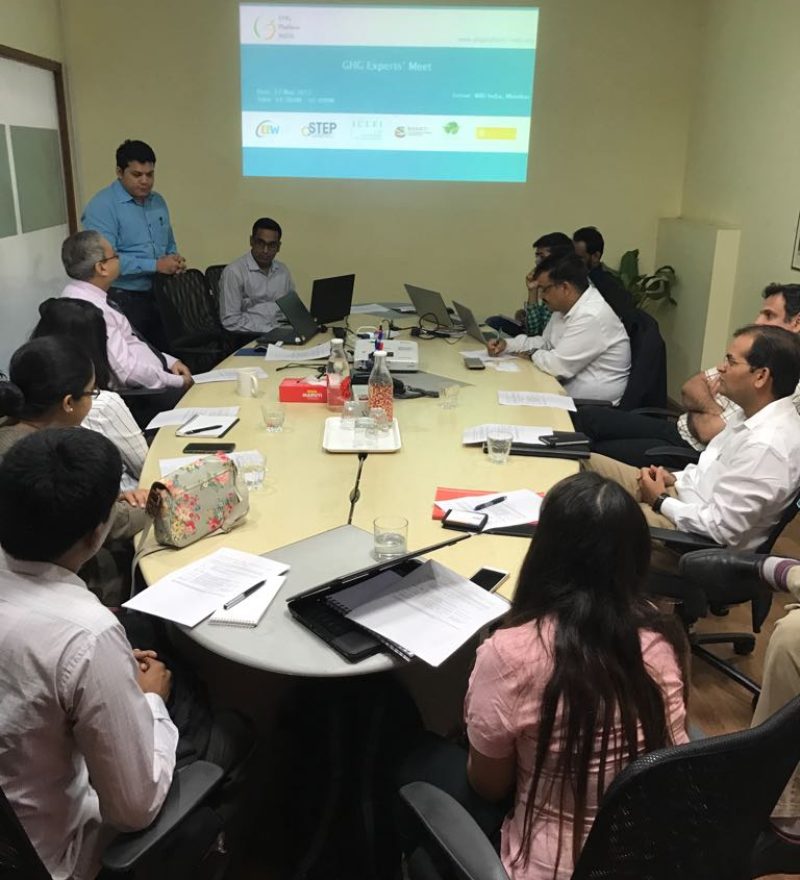Driven By Industry Experts
GST Registration
The name Goods and Services Tax (GST) itself reflects that it is a taxation system that takes into account – the goods and the services. This means GST is applicable on both the tangible goods as well as the intangible services while maintaining the balance of both the Central and the State Government independent revenues through a dual mechanism of GST.
On 1st July, 2017 marked the commencement of the GST regime that brought a comprehensive, multi-stage, and destination-based tax that is charged on every value addition. GST regime shall enhance transparency in the indirect tax framework and is expected to bring down the rate of inflation and cascading effect of tax. It will also be a hike to investment inflows, e-commerce and “Make in India” approach.
So, to claim the ITC and to collect the GST from customers, GST registration is compulsory. GST, therefore is a destination-based tax applicable on all transactions, involving supply of goods / services for a consideration.
GST Services by PG Bansals
How to get a GST Registration?
The name Goods and Services Tax (GST) itself reflects that it is a taxation system that takes into account – the goods and the services. This means GST is applicable on both the tangible goods as well as the intangible services while maintaining the balance of both the Central and the State Government independent revenues through a dual mechanism of GST.
On 1st July, 2017 marked the commencement of the GST regime that brought a comprehensive, multi-stage, and destination-based tax that is charged on every value addition. GST regime shall enhance transparency in the indirect tax framework and is expected to bring down the rate of inflation and cascading effect of tax. It will also be a hike to investment inflows, e-commerce and “Make in India” approach.
GST is based on the “One Nation One Tax” theme and consists of tax rate slabs that start with a minimum of 0% and extend till the highest of 28%
Even today, people are not very much familiar with this tax mechanism and to get acquainted with the same they avail Chartered Accountant service.
The GST regime has made it mandatory for all the business entities engaged in buying or selling goods or services or both to get themselves registered under the provisions of the GST Act. Entities carrying out operations without GST Registrations are ineligible for GST collection from Consumers and they are not allowed to claim an input tax credit paid.
So, to claim the ITC and to collect the GST from customers, GST registration is compulsory. GST, therefore is a destination-based tax applicable on all transactions, involving supply of goods / services for a consideration.
GST Services by PG Bansals
GST Turnover Limit
GST registration is mandatory for casual taxable persons or persons making supplies through e-Commerce operators and non-resident taxable persons, irrespective of turnover limit. Such dealers must avail GST Advisory Service or take help from professionals like CA, CS and lawyers to understand what exactly the Act wants to convey.
“Casual taxable person” means anyone who occasionally undertakes transactions involving supply of goods or services or both in the course of business, whether as principal, agent or in any other capacity, in a State or a Union territory where he has no particular place of business.
Turnover Limit or service providers and goods supplier for regular GST Registrations are mentioned in following points:-
For Goods Suppliers: – As per the respective notification, registration under GST is mandatory for any person who is occupied in the exclusive supply of goods and whose aggregate turnover exceeds Rs.40 lakhs in a Financial year. The supplier must fulfill the below-mentioned conditions:-
- It should not be engaged in the supply of any services
- Must not be engaged in intra-state (supplying goods within the same state) supplies in the States of Arunachal Pradesh, Manipur, Mizoram, Nagaland, Puducherry, Meghalaya, Sikkim, Telangana, Tripura, and Uttarakhand
- Not involved in the supply of pan masala, tobacco or ice creams.
Turnover limit for GST registration falls down to Rs.20 lakhs and Rs.10 lakhs in case of non-fulfillment of the above-mentioned conditions and special category states, respectively.
This means when the supplier does not meet the above-mentioned conditions, it becomes mandatory for him to obtain GST registration when the turnover exceeds Rs.40 lakhs for Goods & 20 lakhs for Service. For the northeastern and other states mentioned in the Act, the GST registration limit is Rs.10 lakhs.
GST registration consultants provide the platform for smooth & easy registrations under it. They take care of the different turnover limits which mandate the registration under the Act
Here is the list of the special category states under GST:-
- Arunachal Pradesh
- Assam
- Jammu and Kashmir
- Manipur
- Meghalaya
- Mizoram
- Nagaland
- Sikkim
- Tripura
- Himachal Pradesh
- Uttarakhand

Aggregate Turnover | Registration Mandatory | Applicability |
Initial Threshold – For the supply of Goods or Services | ||
More than Rs.20 lakh | Yes – For Normal Category States | Till March 31, 2019 |
More than Rs.10 lakh | Yes – For Special Category States | Till March 31, 2019 |
New Limits – For Sale of Goods | ||
More than Rs.40 lakh | Yes – For Normal Category States | From April 1, 2019 |
More than Rs.20 lakh | Yes – For Special Category States | From April 1, 2019 |
New Limits – For Providing Services | ||
The threshold limits for Service Providers have remained unchanged. | ||
GST Services by PG Bansals
Explanation of Aggregate Turnover under GST
Aggregate Turnover under GST =(Taxable supplies + Exempt Supplies + Exports + Inter-State Supplies) – (Taxes + Value of Inward Supplies + Value of Supplies Taxable under Reverse Charge + Value of Non-Taxable Supplies).
It is a PAN-based calculation, so even if one person has multiple places of business, all must be considered and summed to arrive at the aggregate turnover.
GST Services by PG Bansals
Voluntary registration under GST
Any person whether natural or artificial regardless of business turnover can obtain GST registration at any-time. Many businesses that do not meet the aggregate turnover limit also get themselves registered under it. GST registration consultants can suggest you the best advice as to whether or not it’s beneficial to get your business registered under GST.
Major reasons for obtaining voluntary GST registration are:
- For improving the business credibility
- For satisfying the requirements of B2B customers
- For claiming the input tax credit benefits.
GST Services by PG Bansals
What are the documents required under GST?
If you wish to avail services for the GST registration, you need to study the document requirements for GST registration. For now, we can have an understanding of the documents that we need:
PAN CARD OF THE BUSINESS OR APPLICANT: As the GST Registration is linked to the PAN of business. Hence, PAN is the most important document to be obtained by the entity before applying for GST Registrations.
ADDRESS AND IDENTITY PROOF ALONG WITH PHOTOGRAPHS: Following can be admitted and submitted as Identity Proof such as (Passport, Voter ID card, PAN, Aadhar Card, Driving License) and; In case of Address Proof (passport, Aadhar Card, Driving License, Voters Identity Card and Ration Card) Further, the persons who mandatorily need to submit the above-mentioned documents are as follows:-
- Company – Managing Director, Directors and the Authorized Person
- Hindu Undivided Family – Karta
- Proprietary Concern – Proprietor
- Local Authority – CEO or his equivalent
- Statutory Body – CEO or his equivalent
- Trust – Managing Trustee, Trustees, and Authorized Person
- Partnership Firm / LLP – Managing/Authorized/Designated Partners (personal details of all partners are required to be submitted but photographs of only 10 partners including that of Managing Partner is to be submitted);
- Association of Persons or Body of Individuals –Members of Managing Committee (personal details of all members are required to be submitted but photographs of only 10 members including that of Chairman is to be submitted)
- Others – persons in charge
BUSINESS REGISTRATION DOCUMENT
All types of business entities need to provide their proof of business registration but in case of proprietorship, there is no requirement for the submission of the proof of business registration as the proprietor and proprietorship are considered the same. Also, the entities need to submit their charter document. Your GST consultant will guide you throughout the registration process and inform you whether or not you need a proof of business registration.
ADDRESS PROOF FOR PLACE OF BUSINESS
In the GST Registration application, an address proof for all places of business is to be submitted. An array of documents can be used as address proof for the place of your business, you can avail guidance from https://www.gst.gov.in/ in case of any doubt. Following documents are admissible for GST Registration:-
- In case of Owned Premises – Copy of latest Property Tax Receipt or Municipal Khata or Electricity Bill.
- For Rented or Leased Premises- Copy of the valid rental agreement with a supporting document of ownership of the premises of the Lessor i.e. either copy of Latest Property Tax Receipt, Municipal Khata, Electricity Bill. In case of unavailability of the rental agreement or lease deed, an affidavit along with a supporting document in the possession of the premises like a copy of the electricity bill, etc can be used.
- SEZ Premises- In case the premises or the place of business is located in SEZ or the applicant is A SEZ Developer then all the necessary documents as issued and provided by the Government of India must be uploaded.
- Other Cases- Copy of consent letter of the owner of premises along with a supporting document of ownership of premises of the consenter like a copy of the electricity bill, Municipal Khata.
PROOF OF BANK ACCOUNT
Scanned copy of either following documents:-
- First and relevant page of Passbook
- The relevant page of bank statement
- Cancelled cheque bearing the name of Proprietor or business entity, Bank Account No., IFSC, MICR, and Bank Branch details including code.2
- Other Cases- Copy of consent letter of the owner of premises along with a supporting document of ownership of premises of the consenter like a copy of the electricity bill, Municipal Khata.
GST Services by PG Bansals
WHAT ARE GOODS AND SERVICE TAX (GST)
The Goods and Services Tax (GST) is a value-added tax levied on most goods and services sold for domestic consumption. It is a comprehensive, multi-stage, destination-based tax that replaces various previous indirect taxes, including VAT, service tax, and excise duty. GST is collected at each stage of the production and distribution cycle, with the final burden falling on the end customer. It aims to simplify the tax structure, develop a unified national market, and boost compliance. GST is divided into three components: Central GST (CGST), State GST (SGST) within states, and Integrated GST (IGST) for interstate transactions.
GST Services by PG Bansals
MEANING OF GST RETURN FILING
GST return filing refers to the process by which registered taxpayers must file returns for Goods and Services Tax (GST) every month. A ‘return’ is stated as the paperwork that a taxpayer is required to file in accordance with the tax authorities. These returns provide details of the income, sales, purchases, and taxes paid and collected. Filing GST returns is mandatory and ensures compliance with the tax laws. It involves declaring details such as outward and inward supplies, tax liability, and input tax credit. There are different types of GST returns that must be filed monthly, quarterly, or annually, depending on the business turnover and type.
Every individual registered under the new regime of GST would need to file timely returns. Even if a legal entity has no ongoing activity, it must file returns as ‘GST nil returns’ to avoid GST compliance issues.

GST Services by PG Bansals
BENEFITS OF GST RETURN FILING
- Greater Tax Base
- Lower Taxes, Subsuming of Taxes
- Ease of doing Business
- Unified Platform
GST return is a document that consists of all the details of income/sales, expense/purchase of any tax-paying individual or company. One must file their GST return with the tax administrative authority, according to the GST return filing consultants. The net tax liability of a person is calculated by the tax authorities with a GST return. In the GST regime, any regular business with more than 5 crores of annual aggregate turnover is obliged to file 2 monthly returns and 1 annual return. This totals about 26 GST return filings in a year. However, under the QRMP scheme, the number of GST filings may vary quarterly for GSTR-1 filers. For them, the number of return filings in a year is 9 (this also includes GSTR 3B and annual return). Special cases such as composition dealers have separate returns that need to be filed. They are required to file 5 GSTR return filings in a year. Many businesses opt for GST return filing services to ensure accuracy and compliance.
Here is the list of all the GST returns to be filed (along with their due dates) as prescribed under the CGST Act:
Return Form | Applicable Entrepreneurs | Description | GST Filing Due Dates |
GSTR 1 | Taxable Suppliers / Normal Taxpayers | Contain details of taxable goods/services/both and that of outward supplies (sales transactions). No tax is required to be paid through this return | 10th of the next month |
GSTR 2 | Taxable Recipients / Normal Taxpayers | Carries details of inward supplies (purchases) related to taxable goods/services, along with ITC claims | 15th of the next month |
GSTR 2A | Taxable Recipients / Normal Taxpayers | Contains all the data of inward supplies of goods/services. The data is auto-populated and is a read-only return | – |
GSTR 2B | Taxable Recipients / Normal Taxpayers | Is an auto-drafted ITC statement introduced by GSTN to simplify ITC claims | Generated on the 12th of every month |
GSTR 3 | Taxable Individuals | Includes information on monthly returns based on finalization of inward and outward supplies along with total tax payable | 20th of the next month |
GSTR 3B | Taxable Individuals | Contains summarized details of all outward supplies made, input tax credit claimed, tax liability ascertained and taxes paid | Monthly – 20th of the next month |
GSTR 4 | Composition Suppliers | Carries details related to GST return filing that is to be filed on annual basis by taxpayers who have opted for composition scheme | 30th April of next year |
GSTR 5 | Taxable NRIs | Includes details of GST return filing for non-reisdent foreign individuals provided they are registered under GST and carry out transactions in India | 20th of next month |
GSTR 5A | Non-Resident OIDAR Service Providers | Contains details of the services provided from a place outside India to a person in India to unregistered person or non-taxable customers. (OIDAR – Online Information and Database Access or Retrieval) | 20th of next month |
GSTR 6 | Input Service Distributor | Contains details of all the documents issued for the distribution of input credit and the manner of distribution | 13th of next month |
GSTR 7 | Registered Persons Deducting tax at source (TDS) | This form facilitates return filing for authorities initiating TDS. It includes information of TDS deducted, the TDS liability (payable and paid) and TDS refund claimed (if any). | 10th of the next month |
GSTR 8 | E-commerce Operators who are required to collect TCS | Contains information on all the supplies made through the E-commerce platform and the TCS collected on the same | 10th of the next month |
GSTR 9 | Taxable Individuals | Annual Return – It is a combination of all the monthly and quarterly returns filed during that year (GSTR-1, GSTR-2A and GSTR-3B) | 31st December of the next financial year |
GSTR 9A | – | Consolidation of all the quarterly returns filed during the year | – |
GSTR 9B | – | An annual return that contains details filed in GSTR 8 | – |
GSTR 9C | Self-certified Reconciliation Statement | Reconciliation filed by all the taxpayers whose turnover has exceeded 5 crores in that financial year | 31st December of the next financial year |
GSTR 10 | Taxable Individuals | Final Return – Filed by a taxable individual whose registration has been cancelled or surrendered | Within 3 months of cancellation of order |
GSTR 11 | Individuals with UIN | Contains data of all the inward supplies received and claimed refund | 28th of the month following the month for which statement is filed |
GST Services by PG Bansals
Late fee & Penalty for delayed GST return filing
Filing GSTR-3B is mandatory. Even if a business has no transactions during any month, it will still have to file a “NIL Return”.
From June 2021 onwards, the late fees will be levied and capped as follows:
- For Nil tax liability, the penalty is ₹20 per day and maximum ₹500
- For others the penalty is ₹ 50 per day and maximum charges may vary depending on the Annual Aggregate Turnover (AATO)
- The maximum penalty for AATO upto 1.5 crores is ₹2000
- The maximum penalty or AATO between 1.5 to 5 crores the charges are ₹5000
- The maximum penalty for AATO above 5 crores the charges are ₹10000 Interest is 18% per annum. It must be calculated by the taxpayer on the amount of outstanding tax to be paid. The time period will be from the next day of GST return filing to the date of payment.
In case of nil GSTR-3B filing, the maximum late fee charged will be Rs.500 per return (i.e. Rs. 250/- each for CGST & SGST). The maximum penalty is Rs. 10,000 (if the turnover is more than 5 crores). There is no late fee on IGST.
Hire PG Bansal as your GST return filing consultants to ensure prompt filing of GST returns without any delays, complications, or discrepancies.
GST Services by PG Bansals
Why Partner with P G BANSAL for GST Return Filing?
P G BANSALis a trusted name in business consultancy and registration services. Partnering with P G BANSALfor GST return filing ensures a seamless and efficient compliance process. Our team of professionals possesses extensive knowledge of GST regulations, guaranteeing accurate and timely submissions. PG Bansal’s commitment to precision, combined with their proactive approach,
minimizes the risk of errors and potential penalties. Clients benefit from personalized attention, as the firm tailors solutions to individual business needs. Based in Mumbai, we provide proficient Audit and Tax Consultancy services performed by a team of Chartered Accountants, Company Secretaries, Cost Accountants, System Auditors, and Management Graduates with extensive professional experience. The financial expert team at P G BANSAL understands various business processes, identifies challenges, and works to present our valued clients with an ideal and practical solution. Along with GST return filing, we offer a wide range of services that includes various Incorporation, Registrations, ROC Compliances, Tax Compliances, LLP Registration, Audit services, GST Registration, Private Limited Company Registration, Retainership servicesand many more.

GST Services by PG Bansals
GST Compliance and Advisory
Goods and Services Tax (GST) is a tax reform of modern-day in India, and has come into effect from 1st July 2017. GST has modified the panorama of tax compliance significantly, and requires customized technology to assist for secure, smarter and faster reporting of transactions. It has a significant influence over planning for Tax Structure & Incidence, Compliances, and Credit Mechanism. It led to an entire overhaul of erstwhile Indirect Tax System.
The revolution is not just confined to the law and regulations but GST has led to infuse technology for reporting compliances. The Authorities have been proactive in streamlining needs of industry, however, with given magnitude of updation, it comes with its own set of challenges and complexities which makes it crucial for companies to re-visit the GST positions on regular intervals to restrict impact in a longer run.
Businesses today require not only a robust tax technology solution for processing their GST returns and GST advisory matters but also a good consultant who can help them through this process.
Our tax experts who possess local expertise and global reach deliver fully integrated GST Advisory Services to help companies become “GST Ready”.
Under GST Advisory and Compliance, we offer holistic guidance to resolve complex GST related issues. Combining a strong understanding of the business intricacies and comprehensive GST knowledge, we assist our clients with their GST challenges. We are constantly updated of the changing policies and exploring new ways to serve our clients with our GST compliance services.
Our service offerings under GST Advisory and Compliance are:
- Advice on all GST related matters including interpretation of provisions, classification, valuation, GST compliance methodology, representations, GST Technology Software etc.
- GST registrations / amendments and de-registrations
- Software driven diagnostics and filing services to evaluate the accuracy of the transaction data and matching identified exceptions for smooth GST compliances
- Review of compliance data, quality checks and preparation of Outward / Inward / Vendor reconciliations, GST retainership


